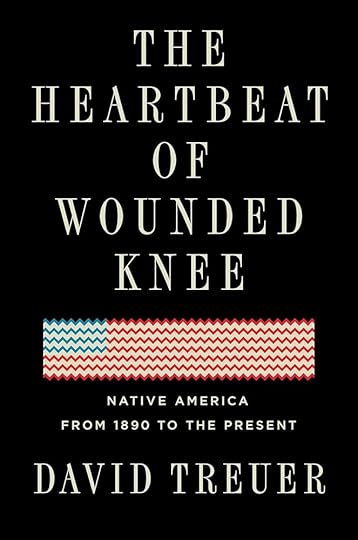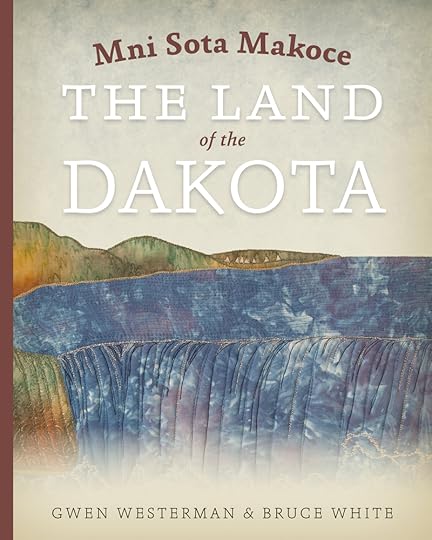Sources that Shape My Understanding of Dakota and Ojibwe History
As an author whose novels explore the history of Native displacement and settler-colonialism in the Upper Midwest—particularly in Minnesota and during the U.S.–Dakota War of 1862—I’ve long recognized the importance of grounding my work in Indigenous perspectives. Understanding history responsibly requires listening to those whose stories have been marginalized for generations.
On Indigenous Peoples’ Day, it feels especially important to acknowledge and honor the voices of Indigenous authors whose work has informed, challenged, and inspired my own storytelling. These sources offer not only historical insight but also a reminder of the resilience, ingenuity, and cultural continuity of Native communities.
Below are some of the works I have relied on most heavily, along with a brief summary of each:

The Heartbeat of Wounded Knee — David Treuer
David Treuer offers a sweeping history—and a vital counter-narrative—to the idea that Native American history ended with the 1890 Wounded Knee massacre. Combining history, reportage, and memoir, Treuer explores how Native communities survived and thrived through adversity, from forced assimilation and land seizures to military service and urban migration. This book is an essential account of the resilience and ingenuity of American Indian life from Wounded Knee to the present.
The Assassination of Hole-in-the-Day — Anton Treuer
This work examines the 1868 death of Hole in the Day, a powerful Ojibwe leader, not merely as a story of Ojibwe–white relations, but through the lens of Ojibwe culture, internal politics, and oral histories. By drawing on interviews with elders and a meticulous study of tribal dynamics, Anton Treuer provides an insightful look into a pivotal period in Ojibwe history.

Mni Sota Makoce: The Land of the Dakota — Gwen Westerman & Bruce White
Often overlooked is the long history of the Dakota people in Minnesota before the 1862 U.S.–Dakota War. Westerman and White trace Dakota connections to the land, explore their cultural and political history, and reveal how misunderstandings and betrayals in treaty-making set the stage for conflict. This work is both a detailed historical study and a celebration of the enduring Dakota presence in Minnesota.
Ojibwe Waasa Inaabidaa: We Look in All Directions — Thomas Peacock & Marlene Wisuri
Peacock’s personal history of Ojibwe culture, illustrated with photographs, artwork, and maps, traces the survival and thriving of the Ojibwe from pre-contact times to today. This book emphasizes the importance of storytelling, land-based knowledge, and cultural continuity.
Being Dakota — Amos E. Oneroad & Alanson B. Skinner
Originally collected in the early 20th century, this manuscript preserves stories, traditions, and cultural practices of the Sisseton-Wahpeton Dakota. Edited and published by Laura L. Anderson, it conveys the original voice of Amos Oneroad, providing insight into daily life, ceremonies, and folk narratives that might otherwise have been lost.
As we reflect on Indigenous Peoples’ Day, I encourage readers to explore these works and listen to the perspectives they offer. Each book opens a window into histories, cultures, and experiences that are often overlooked, providing a richer understanding of Minnesota’s past and the enduring strength of Native communities today.
If you’ve read any of these books—or others by Indigenous authors—I’d love to hear your thoughts and reflections in the comments. Engaging with these voices is an important step toward learning, understanding, and honoring the stories that have shaped this land.

Colin Mustful is a celebrated author and historian whose novel Reclaiming Mni Sota won the Midwest Book Award for Literary/Contemporary/Historical Fiction. With a Master of Arts in history and a Master of Fine Arts in creative writing, Mustful has penned five historical novels that delve into the complex eras of settler-colonialism and Native American displacement. He is also the founder and editor of History Through Fiction, an independent press dedicated to publishing historical narratives rooted in factual events and characters. Committed to bringing significant historical tales to light, Mustful collaborates with authors as a traditional and hybrid publisher. Residing in Minneapolis, Minnesota, he enjoys running, playing soccer, and believes deeply in the power of understanding history to shape a just and sustainable future.



